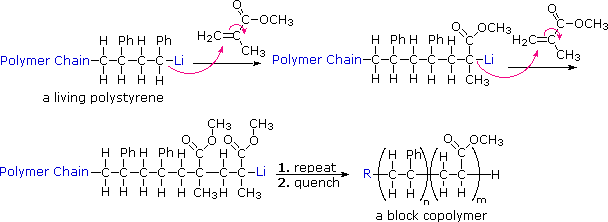Checking Out the Varied Applications and Advantages of Polymers in Different Industries
Polymers, with their varied variety of properties and functionalities, have actually ended up being indispensable in various sectors, each reaping one-of-a-kind advantages from their application. From improving security and performance in the auto industry to changing medical tools in the healthcare industry, polymers play an essential duty.
Automotive Industry Applications
Polymers play an essential function in enhancing the efficiency and durability of various elements within the automobile market. One popular usage of polymers in the auto sector is in the production of lightweight components.

Health Care Market Benefits
In different health care applications, the benefits of using polymers are commonly acknowledged for their diverse array of beneficial homes. Polymers play an essential duty in the healthcare industry as a result of their adaptability, biocompatibility, and cost-effectiveness. Among the main advantages of polymers in medical care is their capability to be customized to certain requirements, such as adaptability, longevity, and biodegradability, making them ideal for a variety of clinical applications.
Polymer-based materials are extensively made use of in medical tools, such as catheters, implants, prosthetics, and medicine delivery systems, as a result of their biocompatibility and capability to imitate natural tissues. These products can decrease the risk of allergies or denials, improving person security and end results. Additionally, polymers are light-weight, making them ideal for wearable medical devices and ensuring client convenience.
Moreover, polymers enable the advancement of cutting-edge treatment approaches, such as hydrogels for cells engineering and nanocomposites for targeted medication delivery. Their ease of handling and sterilization makes them important for keeping high criteria of hygiene in health care setups. In general, the diverse benefits of polymers contribute considerably to innovations in medical technology and client treatment.
Ecological Benefits of Polymers

In addition, polymers can contribute to energy savings as a result of their lightweight nature. In markets such as transportation, light-weight polymer products can aid minimize gas usage and greenhouse gas exhausts. In addition, polymers can make it possible for the growth of energy-efficient items such as insulation products that improve power preservation in buildings.
Additionally, polymers play an essential duty in decreasing water air pollution. The use of polymer-based filtration systems can successfully remove contaminants and contaminants from wastewater, safeguarding water sources and ecosystems. In general, the ecological advantages check my reference of polymers make them beneficial possessions in advertising sustainability and environmentally friendly methods throughout different markets.
Polymers in Electronics and Innovation
Thinking about the raising need for ingenious and sustainable solutions in modern markets, the integration of innovative polymer modern technologies in the realm of electronic devices and innovation has emerged as a pivotal strategy for driving performance and efficiency. Polymers have reinvented the electronics market by allowing the production of lighter, much more versatile, and durable electronic tools. From smartphones to medical gadgets, polymers play a vital role in improving product layout and functionality.
One substantial advantage of polymers in electronics is their shielding residential or commercial properties, which aid protect delicate electronic elements from environmental aspects and electrical disturbance. Furthermore, polymers are necessary in the growth of flexible screens, wearable technology, and printed electronic devices, providing endless opportunities for developing clever and interconnected devices.
Furthermore, using polymers in electronic product packaging has resulted in innovations in miniaturization and thermal administration, improving the overall efficiency and integrity of digital systems. As modern technology continues to progress, the flexibility and versatility of polymers will most certainly drive additionally Read More Here development in the electronic devices sector, forming the future of technology.
Function of Polymers in Building And Construction and Infrastructure
Polymers supply countless advantages in the construction market due to their adaptability, durability, and cost-effectiveness. One key duty of polymers in building and construction is their use in finishes and sealants, giving defense against ecological variables such as moisture, UV radiation, and deterioration.
Additionally, polymers play an essential duty in sustainable building practices by making it possible for the growth of energy-efficient structures. Protecting products made from polymers help manage indoor temperatures, reducing the demand for home heating and cooling systems and ultimately lowering power consumption. The use of polymer-based compounds in framework tasks such as bridges and roads improves their longevity and reduces maintenance expenses. Overall, the unification of polymers in building and construction and infrastructure displays their significant impact on modern design techniques.
Final Thought
Finally, polymers play an essential role in various markets such as automotive, healthcare, environmental, electronics, and construction. Their versatile buildings make helpful resources them valuable in creating cutting-edge options and items. From improving fuel effectiveness in cars to improving clinical devices, polymers provide many advantages. Furthermore, their influence on reducing waste and promoting sustainability highlights their relevance in contemporary applications. The widespread usage of polymers demonstrates their substantial payment to progressing innovation and improving high quality of life.